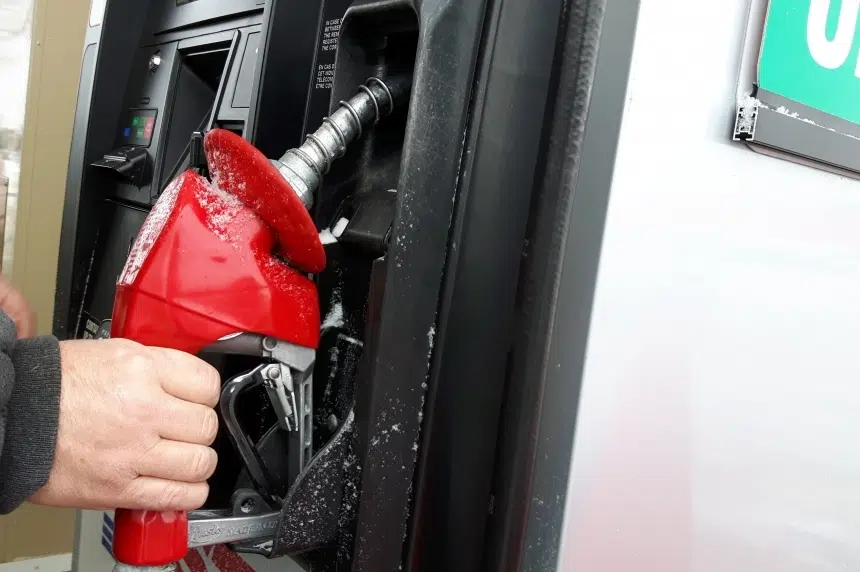Saskatchewan drivers were greeted on Wednesday morning by another spike at the gas pumps.
Some gas stations in Regina were charging $1.78 per litre, while some stations in Saskatoon hit $1.79.
Those numbers are shocking for Toni Glover, who was filling up Wednesday morning.
“I think it’s ridiculous that everything’s going up, but the wages of people’s living (aren’t),” she said.
“We have two incomes in the house, so that helps. But if you’re single or you’re not making more than minimum wage, you’re kind of screwed.”
Glover is still able to afford what she needs, but says it isn’t always easy.
Dan McTeague, the president of Canadians for Affordable Energy and a gas price analyst, said the price jump is one that has already largely affected the rest of Canada. He added gas stations tend to do things differently here in the west.
“Oil prices … have been rising dramatically over the past month or so,” McTeague said. “Like Manitoba (and) like Alberta, Saskatchewan’s prices just didn’t move.
“There’s a reason for that … At some point, when it costs (the stations) $1.60 a litre to buy your fuel, selling for $1.63 a litre and having to honour credit cards, pay for your staff, pay for your overhead, it just becomes a losing proposition.”
According to McTeague, British Columbia, Ontario and Quebec have more predictability because their prices are tied closer to swings in the oil markets.
The price increase is slow arriving to everywhere in the province.
“You have gas stations holding on until the last second and then hitting people not with a small increase that’s gradual and predictable but with one big, huge increase … That’s the nature of the business here in Saskatchewan,” McTeague said.
For Megan Rockbrune, gas is kind of like rent.
Everything has been so hard to afford, she has to live in her car.
“I mean, it’s a lot cheaper, because I just live in my car, right? I don’t have to pay for rent,” she said, after she filled up at $1.78 per litre.
Effect on industry
While the high gas prices hurt everyone who drives, they’re also particularly tough on some industries.
Construction is one of those.
Shantel Lipp, the president of the Saskatchewan Heavy Construction Association, said there’s a lot of strain on the industry.
“The prices for fuel and oil are jumping weekly for the contractors this year. It’s a little bit of a unique situation, one they haven’t seen in a really long time. It’s making a few of them wonder how they’re going to make it through the season with the constant increase,” she said.
Of course, contractors need to drive vehicles and operate heavy machinery, and there’s a lot of fuel that goes into that.
“They use fuel in their operations as well. That goes into part of the paving materials, and all that type of thing,” Lipp explained.
Last fall, they would have paid about $700 a ton for fuel. Now, their costs have skyrocketed to $1,200 a ton.
Also, they can’t just negotiate higher pay to deal with the new costs.
“The majority of the work that’s going to happen this construction season was bid last fall. So as a contractor who’s putting in those bid items, you’re looking at a 67 per cent rise in your diesel fuel … That’s really not something that’s sustainable,” Lipp said.
The government does compensate the companies it contracts for fuel, but Lipp said it isn’t enough right now.
“Unfortunately, because those projects were bid in the fall, the compensation is based on what those bid items were in the fall. It’s quite a difference,” she said.
So what does this all mean?
“The fear always is that projects potentially could be cancelled,” she said.











